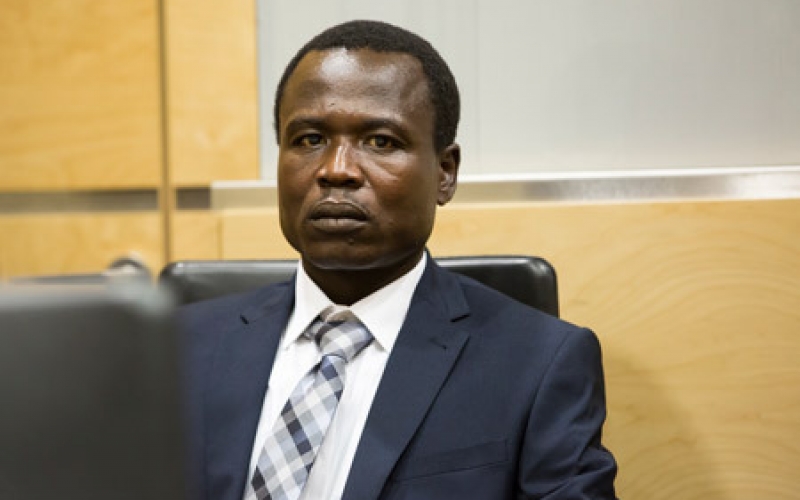More charges for LRA commander Ongwen?

Prosecutors at the International Criminal Court (ICC) are conducting investigations with a view to bring additional charges against Lord’s Resistance Army (LRA) senior commander Dominic Ongwen, whose confirmation of charges hearing is scheduled for January 2016.
At a status conference today, staff of the Office of the Prosecutor (OTP) said although their ongoing investigations could result in new charges beyond those contained in the warrant of arrest against Mr. Ongwen, they were at this stage unable to state the details of the charges.
However, they suggested that the charges could be related to sexual slavery and other sexual crimes, enlistment of child soldiers, and an attack on a camp for internally displaced persons (IDP).
Prosecution staff said if ongoing investigations establish sufficient evidence to support additional charges, they would be included in the document containing charges (DCC) to be issued by the prosecution before the confirmation of charges hearing opens.
Mr. Ongwen, the alleged second-in-command to LRA leader Joseph Kony, whose rebel fighters wreaked havoc in northern Uganda for nearly two decades, surrendered in the Central African Republic (CAR) last January.
He was then transferred to the ICC, which in 2005 issued an arrest warrant against him for three counts of crimes against humanity (murder; enslavement; inhumane acts of inflicting serious bodily injury and suffering) and four counts of war crimes (murder; cruel treatment of civilians; intentionally directing an attack against a civilian population; and pillaging).
The alleged crimes were committed in 2004 during an attack on the Lokodi IDP camp in northern Uganda. Arrest warrants were also issued against Mr. Kony and three other senior rebel commanders. Three of those indicted have reportedly died, although the court has only confirmed the death of one.
Two months ago, a pre-trial judge postponed the confirmation of charges hearing for Mr. Ongwen from this August to next January, after prosecutors requested more time to reestablish contact with witnesses and collect new evidence, including that related to potential new charges.
The judge noted that because the case against Mr. Ongwen had been severed from that of Kony and others, “it is only natural that the prosecutor requires some time to review and process the evidence in light of the new contours of the present case.”
At today’s status conference, Pre-Trial Chamber Judge Cuno Tarfusser said if the prosecution intends to bring additional charges against the accused, it should file a formal notice indicating the time, location, and conduct of Mr. Ongwen in relation to the new charges. The notice should be filed before September 2015 and have “the same level of specificity as the counts in the warrant of arrest.”
In addition, the notice from the prosecution must be accompanied by a waiver from CAR authorities pursuant to Article 101 of the Rome Statute. The Article states that a person surrendered to the court “shall not be proceeded against, punished or detained for any conduct committed prior to surrender, other than the conduct or course of conduct which forms the basis of the crimes for which that person has been surrendered.”
Article 101 further states that the court must request a waiver from the state that surrendered the person to the ICC, and, if necessary, the court shall provide additional information in order to pursue crimes committed outside the scope for surrender.
Defense lawyer Ayena Odong said the prosecution should declare any charges it intends to bring against the accused no later than September in order to allow sufficient time for the defense to prepare its case before the confirmation hearing.
Prosecutors promised to provide this information to the defense by September. However, they claimed they reserved the right to delay precise characterization of the legal mode of liability for the new charges until the final DCC is issued 30 days prior to the confirmation hearing.
This post originally appeared on the International Justice Monitor.
